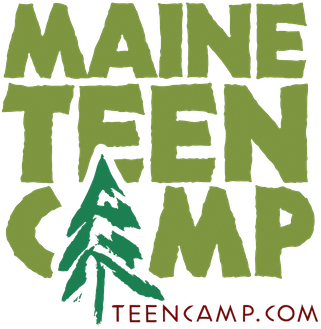Campers For A Better World
- Matt Pines

- May 20, 2022
- 4 min read
Camp – it’s not about politics
It would not be a particularly good idea to write a post about politics for a summer camp blog, especially in the insanely toxic online environment that passes for discourse in 2022. But each year we have a unique experience – we disappear into the woods for 9 weeks, where the hectic demands of the day to day at camp demand our full attention, (happily) leaving no time for the hyper focus on dysfunctional political systems near and far. This experience is, to put it mildly, profoundly thought provoking.
So while I won’t write about politics, it might be a good idea to think about how we interact with each other, how we got to this place, where it’s probably headed, and what role do summer camp’s play in the wider dialogue in a democratic society.

A group of campers taking part in team building activities before climbing up on our adventure course.
To start, we need to examine some of the elements that both scholars and the architects of the American system understood to be essential to a functional, open, democratic society.
While a set of shared values was seen as an essential element, so was diversity. James Madison spoke at length of the importance of as diverse an array of peoples as possible having the best chance of producing able leadership, and a well-balanced democracy. Diversity matters.
50 years later, de Tocqueville took an outsiders eye to the flourishing democracy in the US, and identified several factors he took to be essential. Of particular note, the importance of association and engagement. He was amazed at the level of engagement in every aspect of life. He saw people from all walks of life interacting with each other in service to a wide variety of causes, and he understood how important this was to the functioning of society. Participation in community life is important.
More recently, the trends have not been optimistic. Robert Putnam lays out the evidence in “Bowling Alone” that membership and attendance in civic & governmental groups and clubs has been in steady decline since the 1970’s. However media consumption, in the form of TV, and since the late 90s, internet and the associated device usage, has been rising at a rate matching or exceeding the decline in club/association attendance.
In other words, people are spending more time at home, looking at a screen, and less time out of the home, looking at (and speaking with) other people.
I have no problem making the connection between less person-to-person contact, and the devolved state of political dialogue at all levels, in most countries. We’re less civil, less willing to listen but more able to shout, less likely to seek out, or even just stop to hear opposing view points. As Charlie Puth and Selena Gomez put it “We Don’t Talk Anymore”.
There is nothing new or particularly noteworthy here. What’s it got to do with camp? Well, a lot actually.

Camp gives our population a chance to embrace differences and act on creative thoughts and ideas.
At camp we are not only learning a set of shared values, but the broad and diverse nature of our population pushes us towards values that are most inclusive and universal. A diverse population at camp opens our eyes not only to the importance of creating a community that is welcoming and supportive of all, but one that actually functions better as a result. A summer at camp, with its boundless opportunities to interact with each other, and the absence of distracting, addictive media, helps us learn not only the fundamental pleasure of associating with a wide group of peers, but it hones the interpersonal skills needed to maintain friendships. Maybe most importantly, camp gives us a chance to learn how to disagree without being disagreeable. Not everyone at camp gets along with each other all the time, but we do always expect to be treated with respect and decency.
This all sounds quite grandiose. There is no delusion here, we all know that a few weeks in the woods at a camp in Maine is not the answer to the Big Problems. But we should also be aware of the fact that it is equally unreasonable to expect there is a single, simple solution to the Big Problems. There isn’t. We do know though that throughout history, all around the world, the best solution to problems of all sizes is people of good intention getting together, talking with each other (not past each other) and doing something. What if the solution is actually a bundle of solutions, each small but valuable?
So we’ll go into the woods shortly, hoping that our small part of the answer is an emphasis on giving our kids a chance to hone important interpersonal skills while their brains are most able to learn, so they’ll grow into adults who will do something.
-Matt Pines
Co director/Owner
Matt, from New South Wales, Australia, is a PhD candidate in Public Policy & Educational Leadership at USM, with a research interest in the educational benefits of outdoor experience, serves as a board member of Maine Summer Camps (www.mainecamps.org), and is serving a three-year term on the Falmouth School Board. He has also served on the Education Investment Committee at the United Way of Greater Portland.




Comments